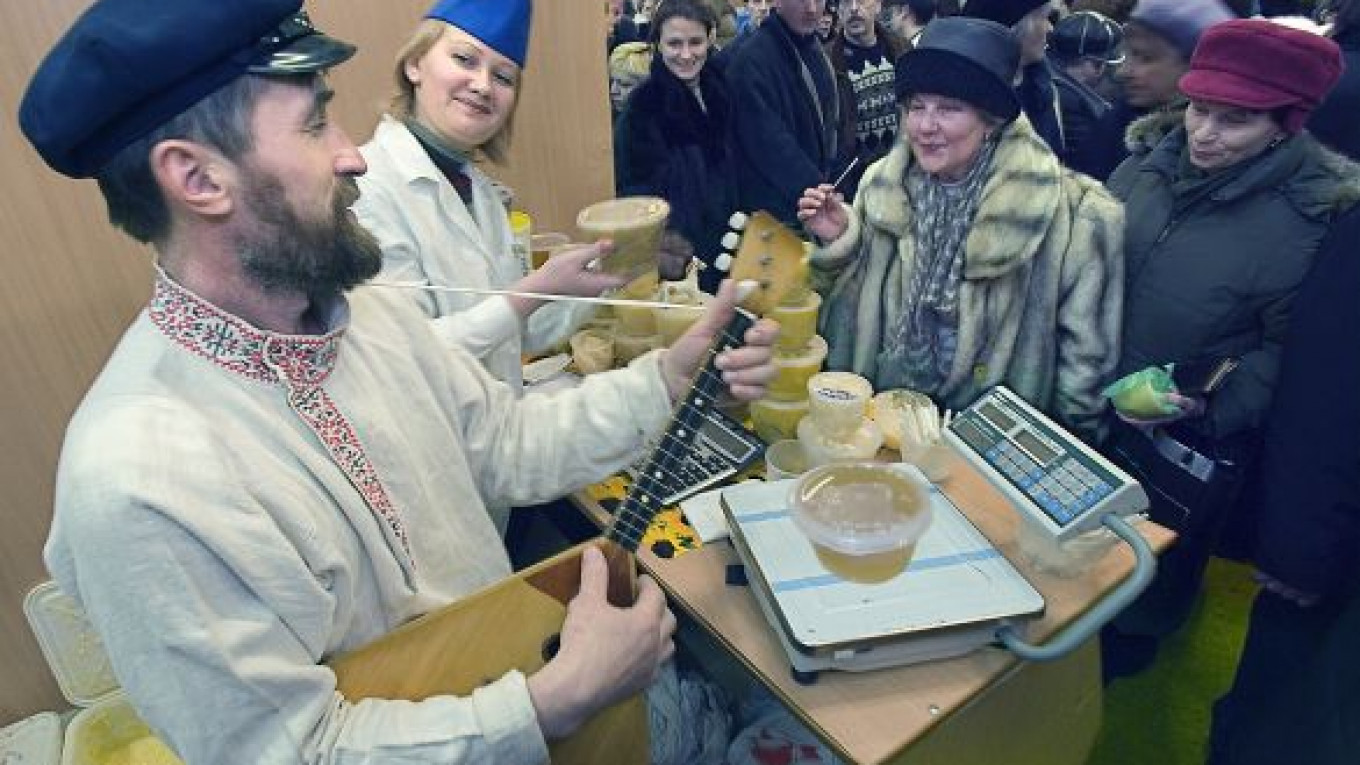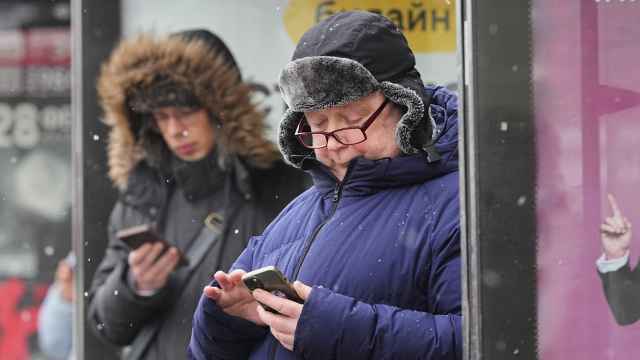Mayor Sergei Sobyanin has discontinued city support for what had become a trademark event under his predecessor: the biannual Moscow honey fair.
The event will also be kicked out of its longtime locations of Manezh Exhibition Hall next to the Kremlin and Tsaritsyno Park, a City Hall official said, marking a key change for the popular, folksy event championed by former Mayor Yury Luzhkov, himself a passionate beekeeper.
The National Beekeepers Union said Friday that the fair had been effectively forced out of the city and would be held in the Crocus Expo center just outside the Moscow Ring Road.
Alexei Nemeryuk, the head of City Hall's trade and services department, said honey fairs would be held at Kolomenskoye Park.
But a honey fair currently being held at Kolomenskoye has nothing to do with the National Beekeepers Union, said a woman who answered the phone Friday at the union and who declined to give her name because she was not authorized to speak to the media.
Under Luzhkov, the event was held twice a year: in Manezh in February and at Tsarytsino in September. Stalls were filled by more than 100 beekeepers from Siberia, the North Caucasus and the Urals, among other Russian regions.
Nemeryuk said the honey fair would no longer be held in its previous locations because Manezh and the fair's site at Tsaritsyno were being repurposed.
"The Manezh Exhibition Hall will be developed according to a new concept that does not foresee trade fairs," he told Interfax.
He said the concept had been developed by the culture department, whose new head, Sergei Kapkov, has been credited with transforming the Soviet-built Gorky Park into a trendy recreation zone that appeals to Moscow's middle class.
Nemeryuk also explained that the former site of the fair in Tsaritsyno had been transformed into a parking lot to ease local traffic conditions. He said the honey fair had caused "certain inconveniences" there.
But Nemeryuk was adamant that the tradition of honey fairs would continue. "They will be held at Kolomenskoye," he said.
The beekeepers union questioned the Kolomenskoye fair's credentials, saying in a statement on its website that the fair's organizers had never conducted an all-Russian honey market. It said the fair's organizers were a company called International Beekeepers Association and the Union of Beekeepers, both registered by Rostov region businessman Nikolai Abakumov.
"Who profits, and how do you, beekeepers, pay money for a stall in the fair and to whom?" the National Beekeepers Union asked in its .
Abakumov denied hurting beekeepers' pocketbooks, telling RIA-Novosti that he thanked City Hall for letting beekeepers set up their stalls "without middlemen."
Related articles:
A Message from The Moscow Times:
Dear readers,
We are facing unprecedented challenges. Russia's Prosecutor General's Office has designated The Moscow Times as an "undesirable" organization, criminalizing our work and putting our staff at risk of prosecution. This follows our earlier unjust labeling as a "foreign agent."
These actions are direct attempts to silence independent journalism in Russia. The authorities claim our work "discredits the decisions of the Russian leadership." We see things differently: we strive to provide accurate, unbiased reporting on Russia.
We, the journalists of The Moscow Times, refuse to be silenced. But to continue our work, we need your help.
Your support, no matter how small, makes a world of difference. If you can, please support us monthly starting from just $2. It's quick to set up, and every contribution makes a significant impact.
By supporting The Moscow Times, you're defending open, independent journalism in the face of repression. Thank you for standing with us.
Remind me later.







